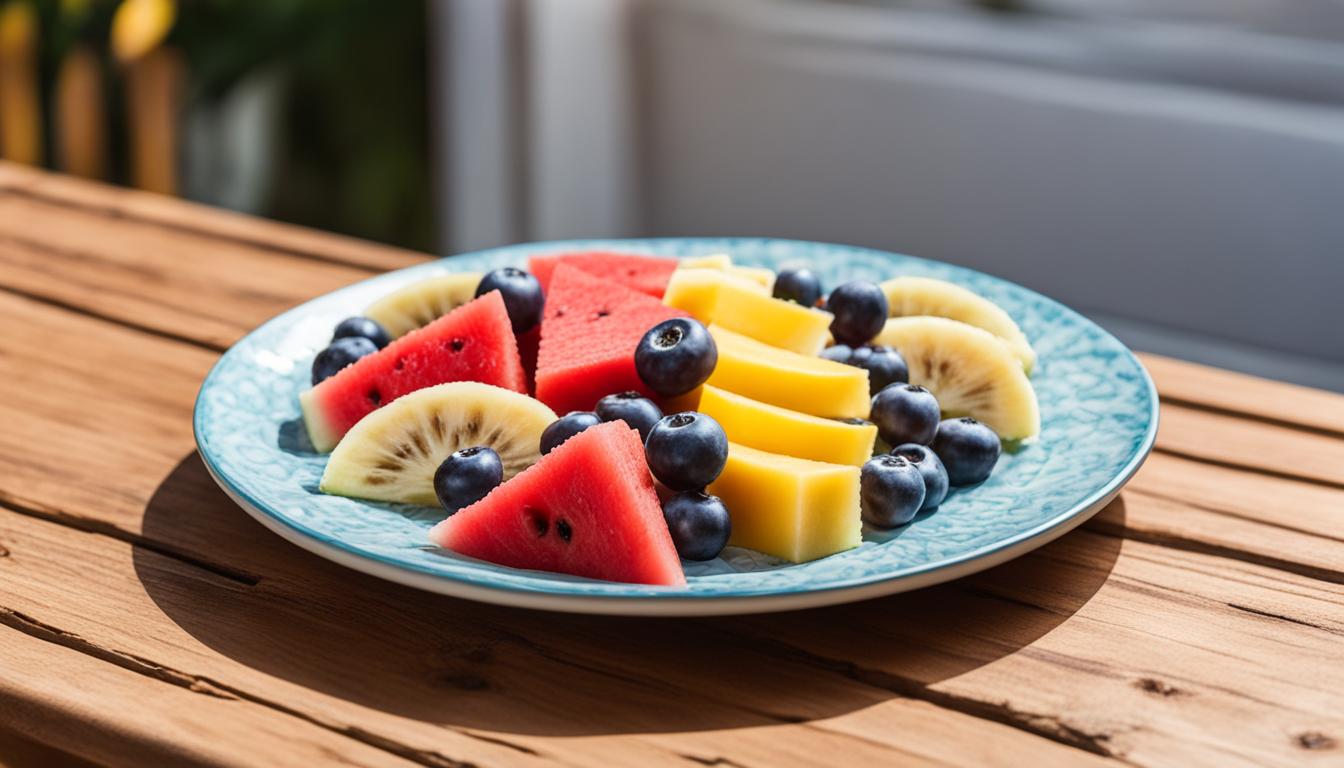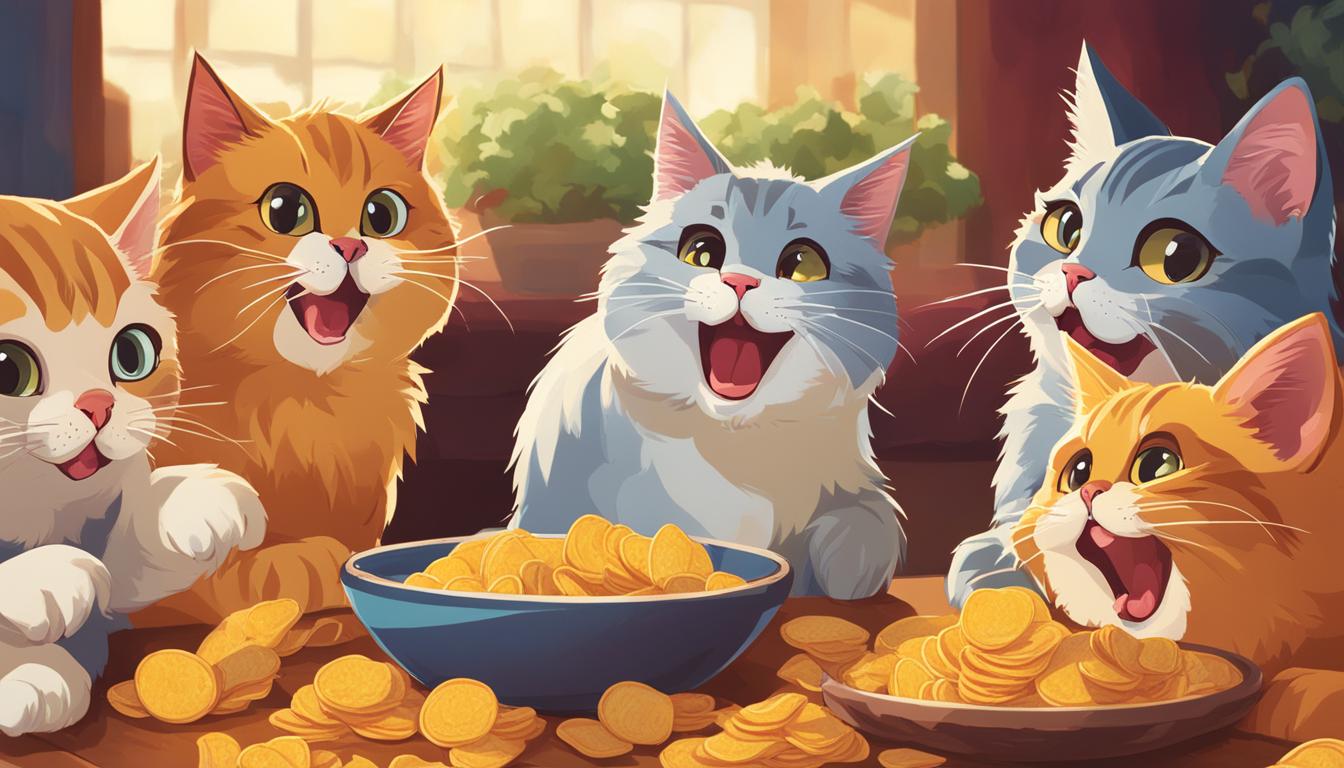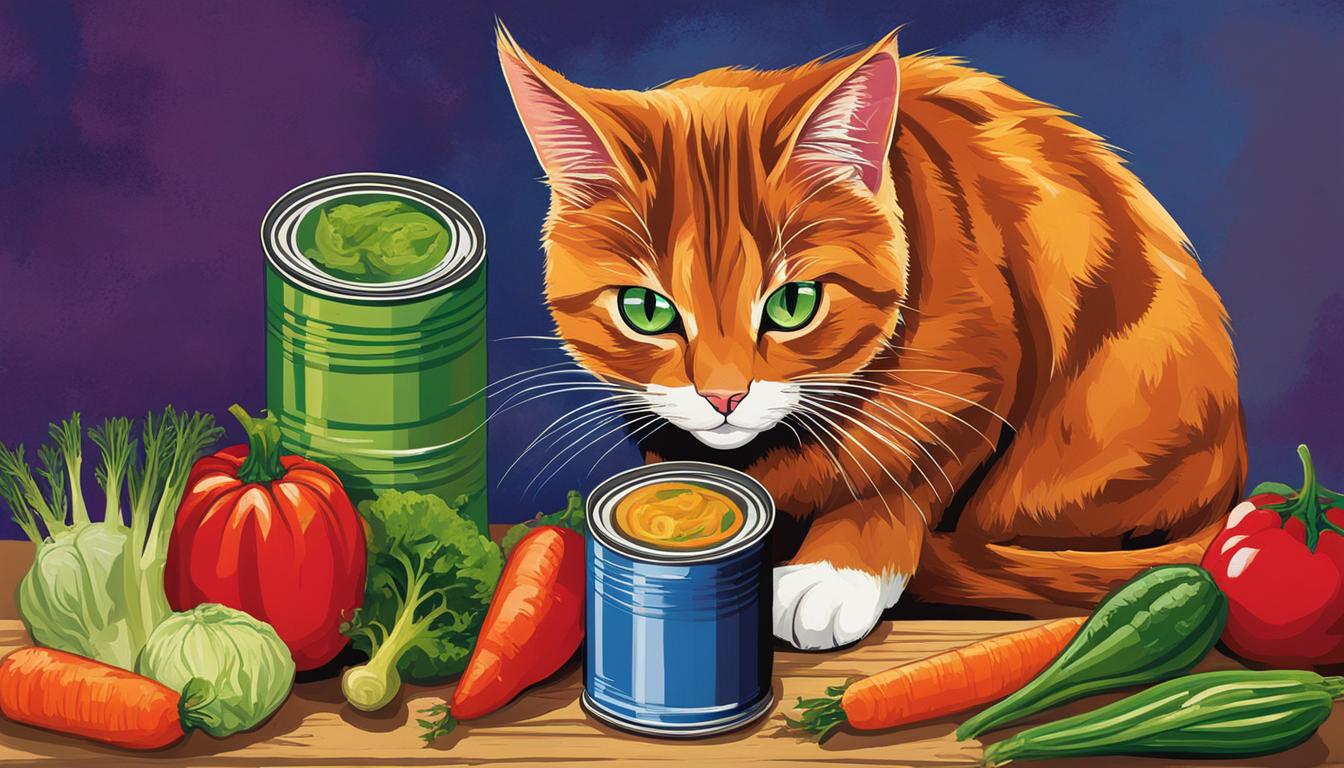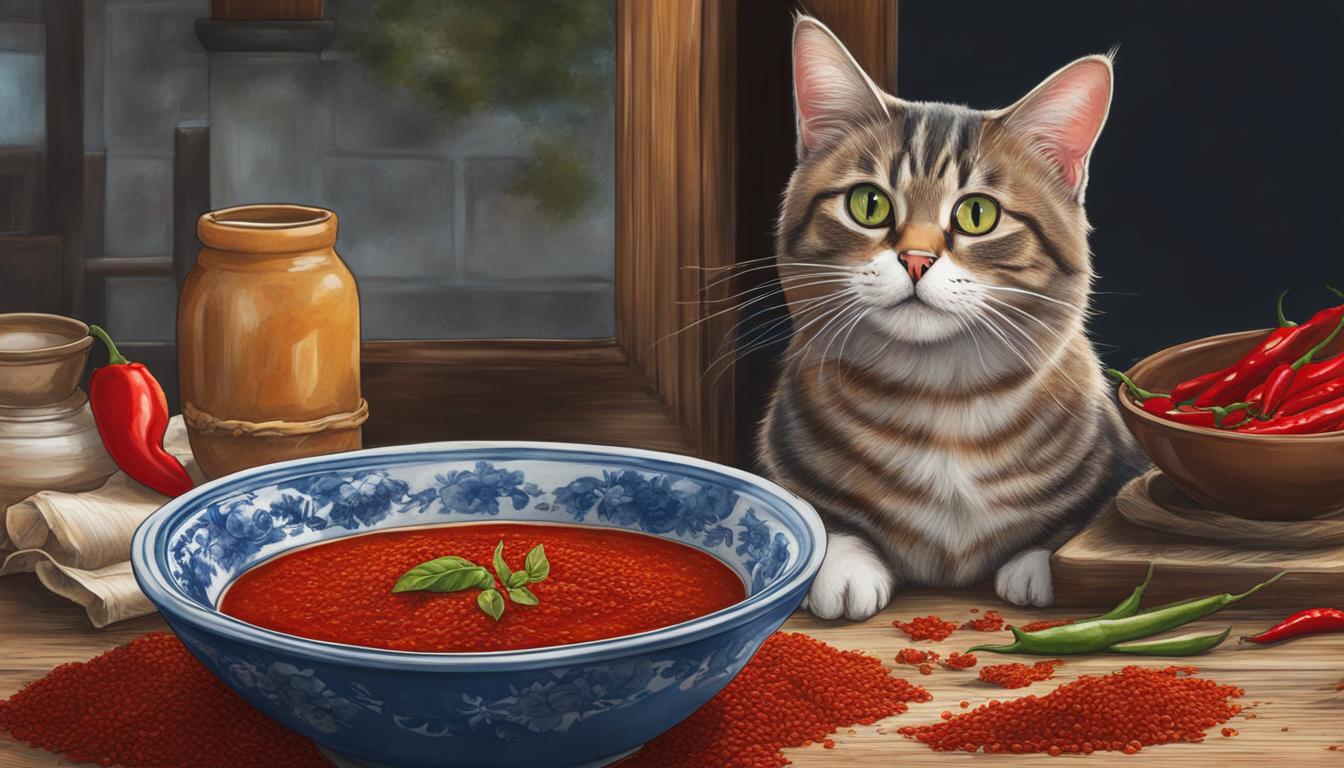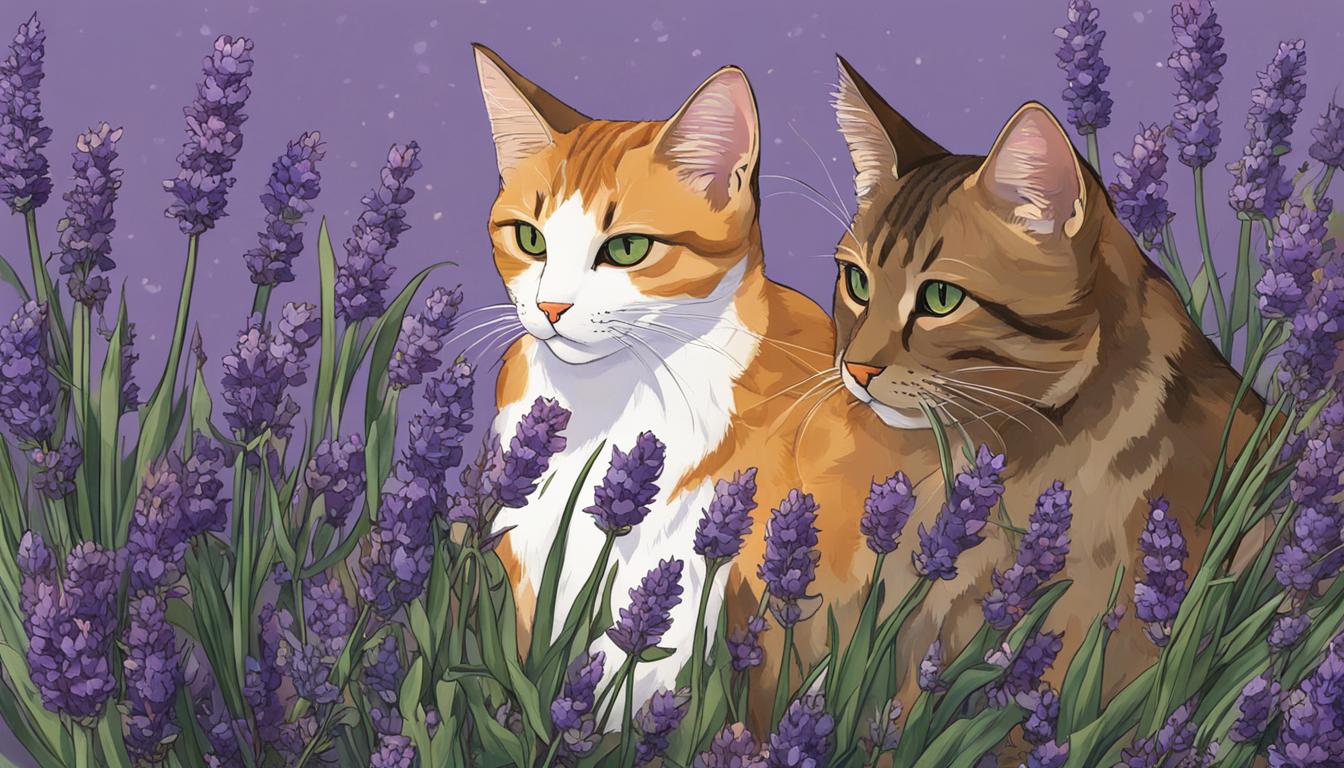As a dedicated cat lover, I’ve always been curious about what foods are safe and healthy for our feline friends. One question that often comes up is whether cats can indulge in salty or sugary treats like we humans do. So, I did my research to find out the truth behind it.
When it comes to salt, cats actually need a certain amount in their diets for proper nerve and muscle cell function. However, they already get the right amount of salt from their specially formulated cat food. The Association of American Feed Control Officials recommends a specific sodium intake for cats, and their cat food already meets these guidelines. So, there’s no need to add extra salt to their diet.
As for sugar, it’s not a natural part of a cat’s diet. Cats are obligate carnivores, which means they derive their energy from animal protein, not carbohydrates. While sugar itself isn’t toxic to cats, it can be difficult for them to digest and may cause digestive issues. Furthermore, long-term sugar consumption can lead to weight gain, diabetes, tooth problems, and other health issues in cats.
So, the bottom line is that cats should stick to their specially formulated cat food for their nutritional needs. Let’s delve deeper into this topic to ensure we keep our furry friends healthy and happy.
Key Takeaways:
- Cats get the right amount of salt from their specially formulated cat food. Additional salt is unnecessary and can be harmful.
- Sugar is not a natural part of a cat’s diet and can be difficult for them to digest. Long-term sugar consumption can lead to health issues.
- Cats should stick to their specially formulated cat food for their nutritional needs.
- Excessive salt intake can be harmful to cats and may cause symptoms such as vomiting, diarrhea, and muscle weakness.
- If a cat consumes a large amount of salt or salty foods, it is important to contact a veterinarian for proper treatment.
Can Cats Digest Sugar?
Cats, as obligate carnivores, have a unique dietary requirement that centers around animal protein rather than carbohydrates. While sugar itself is not toxic to cats, it is not a natural part of their diet and can be challenging for them to digest. Consuming sugar can lead to digestive issues, such as vomiting and diarrhea, as well as discomfort in cats. It is important for cat owners to be mindful of the sugar content in their feline friends’ diet and avoid giving them sugary treats or foods.
Long-term consumption of sugar can have detrimental effects on cats’ health. It can contribute to weight gain, which in turn can lead to obesity and related health issues such as diabetes, heart disease, and joint problems. Additionally, sugar can also cause dental problems for cats, including tooth decay and gum disease.
“Cats are not designed to handle large amounts of sugar in their diet,” says Dr. Sarah Johnson, a veterinarian specializing in feline care. “Their bodies are adapted to metabolize and utilize animal protein efficiently. While an occasional small amount of sugar may not cause immediate harm, it is best to avoid giving cats sugary foods and treats altogether.”
Cat owners should also be aware of other ingredients commonly found in sweets and candy that can be toxic to cats. Xylitol, a sugar substitute often used in sugar-free gums and mints, can be extremely dangerous for cats. It can cause stomach upset, liver damage, low blood sugar, seizures, and even death. Chocolate, especially dark chocolate, is also toxic to pets and can cause various symptoms such as stomach upset, muscle tremors, seizures, and heart rate abnormalities.
| Cats | Dogs | |
|---|---|---|
| Toxic Foods | Chocolate, xylitol | Chocolate, xylitol, grapes, raisins |
| Symptoms | Vomiting, diarrhea, tremors | Vomiting, diarrhea, kidney failure |
| Severity | Moderate to severe | Severe |
To ensure the safety and well-being of our feline companions, it is crucial to keep sweets and toxic substances out of their reach. Store sweets in locked containers or high shelves where cats cannot access them. It is also important to educate children about the potential harm that sugary treats can cause to cats and to provide them with alternative ways to interact with and treat their feline friends. If a cat ingests a sweet or toxic substance, it is essential to contact a veterinarian immediately for guidance and proper treatment.
Harm of Added Sugar in Cat Food
When it comes to cat food, many pet owners may not be aware of the potential harm that added sugar can cause to their feline friends. While cats have a natural instinct for seeking out meat-based foods, some wet cat foods on the market contain added sugar that provides no nutritional benefit for cats. This can be problematic as it can contribute to weight gain, a common issue among cats. Carbohydrates like sugar do not provide the same level of satiety as protein, which means that cats may consume more food in search of the necessary nutrients, leading to excessive calorie intake and weight gain.
Weight gain in cats can have serious consequences for their health. It can increase the risk of conditions such as heart disease, urinary tract disease, and diabetes. Additionally, the high sugar content in cat food may also lead to dental problems. Cats do not naturally have a sweet tooth, so the inclusion of added sugars in their diet is unnecessary and potentially harmful.
| Cat Food Brand | Added Sugar Content |
|---|---|
| Brand A | 5g per serving |
| Brand B | 3g per serving |
| Brand C | 1g per serving |
To ensure the health and well-being of your cat, it is important to make informed choices when it comes to their diet. Look for cat food brands that do not contain added sugar and prioritize high meat content. PrimaCat cat food products, for example, are designed with this principle in mind. They provide cats with the necessary nutrients without the harmful effects of added sugars. It may take time for cats to adjust to sugar-free options due to their selective nature, but making the switch gradually is worth the effort for their long-term health.
By choosing cat food without added sugar and providing a balanced and varied diet, you can help your feline companion maintain a healthy weight and reduce the risk of developing associated health issues. Remember, your cat’s well-being is in your hands, and making informed choices about their nutrition is an essential part of responsible pet ownership.
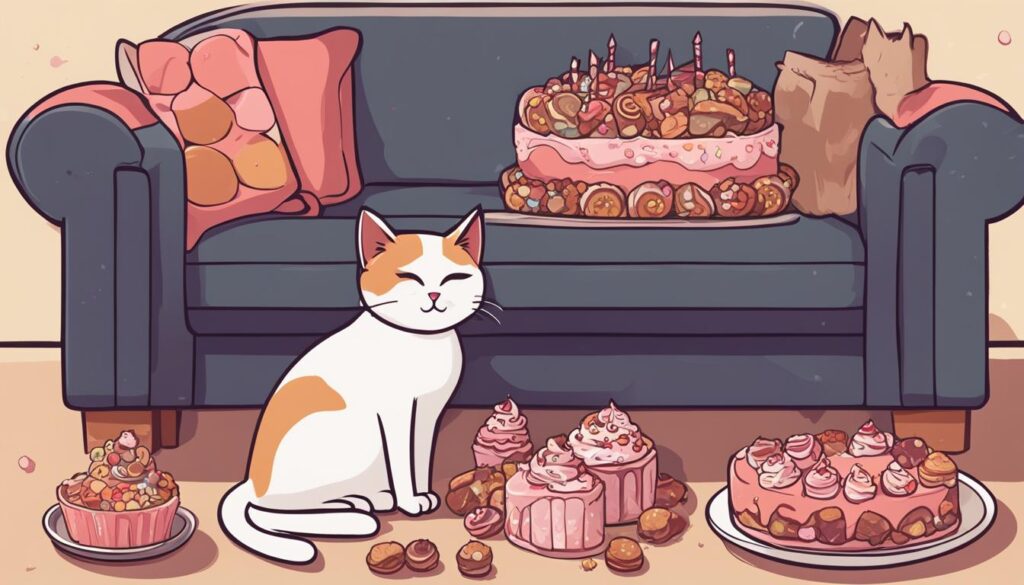
Toxic Sweets for Cats
Cats may be curious creatures, but when it comes to sweets, they should steer clear. While sugar itself is not toxic to cats, there are several sweets and candy ingredients that can be highly dangerous to their health. It’s crucial for cat owners to be aware of these toxic sweets and take necessary precautions to keep them out of their furry friends’ reach.
1. Chocolate: Chocolate, especially dark chocolate, contains theobromine, a substance that is toxic to cats. Even small amounts of chocolate can cause symptoms such as stomach upset, muscle tremors, seizures, and even heart rate abnormalities. It’s important to ensure that chocolate is stored securely and kept away from cats.
2. Xylitol: Xylitol is a common sweetener found in sugar-free gums, mints, and other candies. Ingesting xylitol can cause stomach upset, liver damage, low blood sugar, seizures, and even death in cats. It’s crucial to keep all sugar-free products that contain xylitol out of their reach.
3. Raisins and grapes: Raisins and grapes can be highly toxic to cats and can lead to kidney failure. Even small amounts can be dangerous, so it’s essential to ensure that cats cannot access these fruits or any food products that contain them.
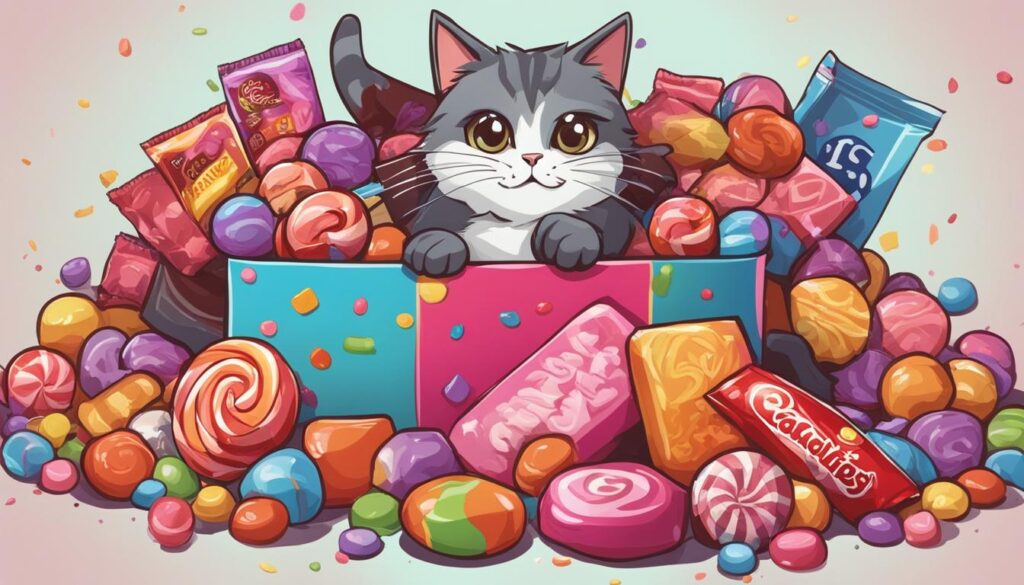
Dangers of Chocolate for Cats
“Chocolate contains theobromine, which is toxic to cats. Even small amounts can cause symptoms such as stomach upset, muscle tremors, seizures, and heart rate abnormalities. It’s important to ensure that chocolate is stored securely and kept away from cats.”
Xylitol Poisoning in Cats
“Xylitol, a common sweetener found in sugar-free gums and candies, can cause stomach upset, liver damage, low blood sugar, seizures, and even death in cats. It’s crucial to keep all sugar-free products that contain xylitol out of their reach.”
Raisins and Grapes Toxicity in Cats
“Raisins and grapes can be highly toxic to cats and can lead to kidney failure. Even small amounts can be dangerous, so it’s essential to ensure that cats cannot access these fruits or any food products that contain them.”
Keeping Your Cat Safe from Sweets
As a responsible cat owner, it’s important to take measures to keep your feline friend safe from sweets. Cats are naturally curious and agile, so it’s crucial to prevent them from accessing candies and sugary treats that can be harmful to their health. Here are a few strategies to keep sweets away from cats:
- Store sweets in locked containers or high shelves: Cats have a knack for getting into places they shouldn’t be. To prevent them from reaching sugary treats, store them in locked containers or on high shelves that are out of your cat’s reach.
- Secure your trash cans: Cats are notorious for scavenging through the trash in search of tasty human food. Ensure that your trash cans are securely covered or kept in a cabinet to prevent your cat from rummaging through them.
- Educate children about cat diet: If you have children in your household, it’s essential to educate them about why cats cannot have candy or sweet things. Teach them about the potential harm these treats can cause to cats and provide them with alternative, healthier options to give to their feline friends.
“Preventing your cat from accessing sweets and candies is crucial to their well-being. By taking simple precautions such as storing sweets in locked containers and educating children about cat diet, you can create a safe environment for your feline companion.”
If your cat does manage to eat a sweet or toxic substance, it’s important to act quickly. Contact your veterinarian immediately and provide them with as much information as possible regarding the ingested substance. Time is of the essence when dealing with potential poisoning, so prompt action is crucial for your cat’s well-being.
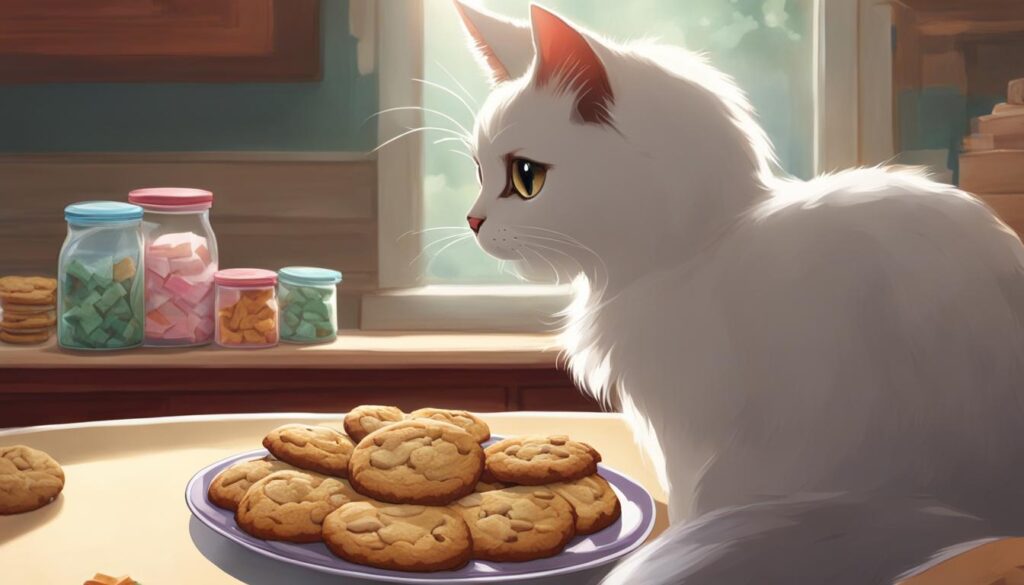
By implementing these preventative measures and staying vigilant, you can ensure your cat’s safety and protect them from the potential dangers of sweets. Remember, a healthy and balanced diet is essential for your cat’s overall well-being, so it’s best to stick to specially formulated cat food and cat-friendly treats to keep them happy and healthy.
Healthy Alternatives for Cats
When it comes to treating our feline friends, it’s important to steer clear of sugary options and opt for healthier alternatives. Not only will these alternatives satisfy their taste buds, but they will also provide nutritional benefits. Here are some cat-friendly savory treats that you can offer your furry companion:
- Cooked Chicken or Turkey: Cats are natural carnivores, so lean, cooked chicken or turkey without any spices, salt, or sauces can be a delightful and protein-rich treat for them. Cut it into small, bite-sized pieces and watch your cat savor every morsel.
- Gourmet Cat Treats: If you’re looking for a special treat for your feline friend, consider exploring local pet boutiques that offer gourmet cat treats. These treats are carefully crafted to ensure both taste and health benefits, making them an excellent choice for your cat.
- PrimaCat Sugar-Free Cat Food: Another option for providing your cat with a healthier alternative is to incorporate PrimaCat cat food products into their diet. These cat foods have high meat content and are specially formulated without added sugar, aligning perfectly with cats’ natural dietary needs.
Remember, it’s important to offer a balanced and varied diet to your cat, ensuring their overall well-being and satisfaction. These alternatives will not only keep your cat happy but also contribute to their long-term health. And always consult with your veterinarian before making any significant changes to your cat’s diet.
| Treat Options | Description |
|---|---|
| Cooked Chicken or Turkey | A protein-rich treat that cats naturally enjoy. Ensure it’s plain, without spices, salt, or sauces. |
| Gourmet Cat Treats | Explore local pet boutiques for specially crafted treats that provide both taste and health benefits for cats. |
| PrimaCat Sugar-Free Cat Food | Specially formulated cat food with high meat content and no added sugar, meeting cats’ natural dietary needs. |
By offering these healthy alternatives, you can provide your cat with delicious and nutritious treats that are free from the harmful effects of sugar. Your feline friend will appreciate the variety and you can have peace of mind knowing that you are promoting their overall well-being.
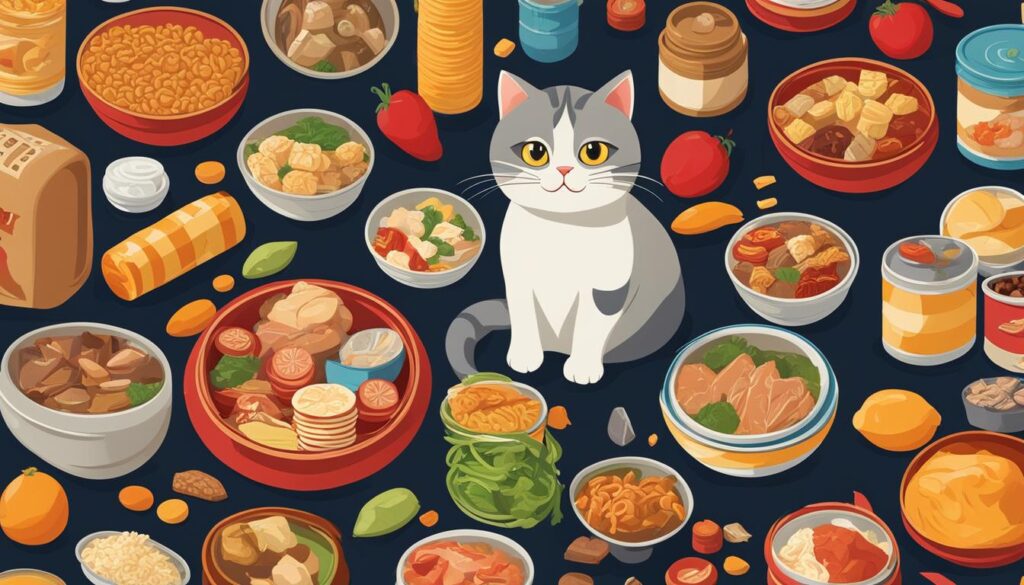
Conclusion
While cats do not require salty or sugary foods in their diet, it is crucial to be mindful of their salt and sugar intake. Cats’ nutritional needs are best met through expertly formulated cat food that already contains the appropriate amount of salt. Excessive salt consumption can be harmful to cats, and toxic sweets should always be kept out of their reach.
Sugar itself is not toxic to cats, but it is not easily digested and can lead to weight gain and other health issues. Cats are obligate carnivores and derive their energy from animal protein, so sugar is not a natural part of their diet. Providing cats with a balanced and varied diet, free from added sugar, is essential for their overall health and well-being.
So, let’s keep an eye on our beloved feline friends’ salt and sugar intake. By opting for specially formulated cat food and avoiding toxic sweets, we can ensure that our cats stay healthy and happy. After all, a well-fed cat is a content cat!
FAQ
Can cats eat salty or sugary foods?
Cats do not require salty or sugary foods in their diet. They obtain the necessary salt from their specially formulated cat food, which already contains the appropriate amount. Cats should not be given salty or sugary human foods as they can be harmful and may cause health issues.
What is the recommended sodium intake for cats?
The Association of American Feed Control Officials recommends that dry cat food should contain at least 0.2-percent sodium of the total dry matter or 0.5 grams of sodium per 1,000 calories. Cats can adapt well to changes in salt levels in their diet and do not require a low-sodium diet unless advised by a vet.
Can cats digest sugar?
Cats can have difficulty digesting sugar as it is not a natural part of their diet. While sugar itself is not toxic to cats, it can cause digestive issues such as vomiting and diarrhea. Long-term sugar consumption can lead to weight gain, diabetes, and other health problems.
Is there added sugar in cat food?
Many wet cat foods contain added sugar, which has no nutritional benefit for cats. The main concern with cat food containing added sugar is that it can contribute to weight gain. Cats should be fed a balanced diet that prioritizes high-quality protein and minimizes added sugars.
What are the dangers of toxic sweets for cats?
Certain sweets and candy ingredients are highly toxic to cats. Xylitol, commonly found in sugar-free gums and mints, can cause stomach upset, liver damage, low blood sugar, seizures, and even death. Chocolate, especially dark chocolate, is also toxic and can cause various symptoms such as upset stomach, muscle tremors, seizures, and heart rate abnormalities. Raisins and grapes can lead to kidney failure, and caffeine can also be toxic to cats.
How can I keep my cat safe from sweets?
To keep sweets out of a cat’s reach, store them in locked containers, high shelves, or tightly covered areas. Ensure that trash cans are secure and unappealing to cats. Educate children about why cats cannot have candy or sweet things and discuss healthier treat options they can give to their feline friends.
What are some healthy alternatives for cats?
Instead of giving cats sugary treats, you can offer them small pieces of cooked chicken or turkey without spices, salt, or sauces. Local pet boutiques may have special gourmet treats suitable for cats. Some cats prefer to stick with their favorite treats or regular cat food, which is a safe and familiar option. PrimaCat cat food products provide high meat content and do not contain added sugar, making them a suitable choice for cats.

